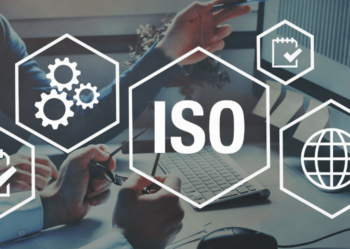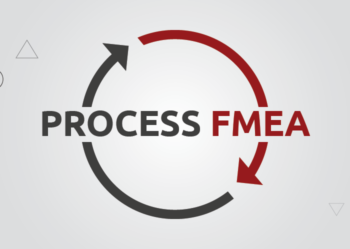How to integrate to French carmakers: Groupe PSA example

On the 15th of November, SNECI has participated in the Korea Auto-parts Delegation in Europe. Hervé Champion, Director of Business Development, and Lucas Bitar, NSA Auditor & Quality Engineer, have presented the main players on the French car market to Korean automotive suppliers willing to do business in France. More importantly, they have unveiled the secret of a successful integration process to French carmakers, using Groupe PSA as an example.
How to approach a French carmaker
There are two major automotive groups in France, Groupe PSA and Groupe Renault, both with the right size to face the future challenges of the automotive industry. After an upcoming merger with FCA, PSA will become a Top-4 global carmaker with an estimated 8.7 million vehicle sales, just a step lower from Renault-Nissan-Mitsubishi Alliance (10.8 million cars sold in 2018).
Here are several key rules on how to build strong business cooperation with these two giants:
- Put in place the right sales and project organizations with local support in France and sufficient knowledge of PSA and RENAULT specific requirements.
- Start with a market survey to save time for future business development activities (find out about the technology and price levels, competition, and market size).
- Introduce your company’s profile to the right purchasing department level to get the first RFIs (Requests for Information).
- Prepare carefully your company profile and especially highlight your strengths such as low-cost footprint, innovation, or business with the existing carmakers’ partners (for example auto parts producers of Mitsubishi or Nissan will have more chances to get into Renault’s supplier panel).
- Get trained on PSA and RENAULT rules (how to answer to the RFQ and how to manage their B2B portals).
- Register your company in PSA and RENAULT B2B Portals.
- Pass specific audits (NSA for PSA, ASES for Renault).
How to integrate to PSA: Supplier Plant Qualification
With more than 3.9 million vehicles sold worldwide in 2018, PSA Groupe is the second best-selling auto manufacturer in Europe. To ensure its leadership, international presence, and quality throughout the entire automotive supply chain, the group has put in place a specific Global Sourcing Process.
PSA’s Global Sourcing Process consists of three phases: Selection Phase, Development Phase, and Mass Production Phase. Let’s concentrate on how to get selected.
Get selected: the Ultimate Guide to the Selection Phase in PSA’s Global Sourcing Process
We can probably stop on this one statement: The success key to the Selection Phase is commercial and technical lobbying.
Let’s now break down this statement step-by-step.
To be selected for an RFQ, a supplier needs, first of all, to “know himself”. In other words, to understand perfectly his financial and market status, product expertise, and development strategy.
Second, a supplier needs to know its customer, in our case, PSA. This includes the understanding of customer-specific requirements alongside customer general purchasing conditions (IATF, ISO 14001, NSA).
Third, an auto part producer has to register in the PSA’s B2B Portal by filling in its company’s profile and commodity information to eventually receive a supplier code (COFOR).
The last step does not yet guarantee that a plant will be chosen for an RFQ.
To not get lost amongst the others in the panel, suppliers need to build a close relationship with PSA’s purchasing and technical departments. It is on this stage that commercial and technical lobbying plays a crucial factor.
A car part producer should establish a multidisciplinary commercial team with experts in Project, Quality, and Manufacturing. This team will organize meetings with key PSA contacts to confirm the supplier’s favorable positioning in the panel.
A lot of foreign companies do not have a necessary network within PSA. That is why they often rely on commercial support of companies like SNECI that have specialists with deep knowledge of PSA environment and management.
After a successful acquisition of an RFQ, the company has to prepare a technical offer that, once validated by PSA, should be followed by supplier plant qualification, NSA audit.
New Supplier Assessment, or shortly NSA, is an audit of new production locations that evaluates the manufacturing maturity level of the supplier and its operational capability to launch new projects.
Based on their technical and economical offer alongside the availability of plant certification following the NSA, PSA decides to source a supplier. The Development Phase begins.
Stay in: Use QIP Framework to go from Reactive to Proactive
Once selected, the supplier will have to reconfirm continuously its position in the panel. The best way to do this is by following PSA’s QIP framework.
QIP (Quality & Industrial performance) is the worldwide PSA audit standard process to qualify a manufacturing site. It includes three obligatory steps:
- Step #1: NSA (New Supplier Assessment) Audit -> the one required to be nominated
- Step #2: PCPA (Parts Control Process Assessment) Audit -> the one during Development Phase
- Step #3: QSB+ (Quality System Basics Plus) Audit & Certification -> the one required for mass production
The last one, QSB+ certification of a suppliers’ manufacturing plant, is granted for 4 years.
Comparing to a well-known IATF 16949 Standard, QIP is more focused on Customer Specific Requirements (CSR) than ISO generic requirements. Moreover, if IATF 16949 checks that Quality Systems are put in place, the goal of QIP is to analyze how these systems are being used.
QIP evaluates the production plant on 13 key elements. Among them, Corporate Management and Strategy, Control of Non-Conforming Product, Layered Process Audit and Skills Management, Risk Reduction, Manufacturing Flows Management, External Logistics, and Parts & Process Control.
To sum up: Key Steps to a Successful Integration to French Auto Manufacturer
If you are thinking of moving forward and broadening your auto part business by entering a French carmaker’s supplier panel, you should keep in mind these key elements:
- Know what you are capable of and what you want. Your strategy should be the first reason to pursue or to drop the attempts of entering a French OEM.
- Understand the market.Before jumping into something, better to study the competition and local development level of the industry.
- Know your client.Learn as much as possible about French carmakers’ needs and requirements to be prepared and respond correctly to their demands.
- Have a network.Make connections with corresponding decision-makers within a French group as the key to being selected for an RFQ is commercial and technical lobbying.
- Stay certified. Acquire the latest quality, production and process certifications from partner-auditors of a French car manufacturer.
How can we help?
SNECI is supporting auto part manufacturers in their integration to PSA in three different ways.
First and foremost, our Business Development team are providing Lobbying & RFQ support. As a lot of SNECI experts are coming from the two French car groups, we have the essential relationships with key contacts of PSA alongside the remarkable experience in PSA methodologies (CSR, RFQ, PLM).
Second, we are an official provider of APQP/PPAP (Advanced product quality planning / Production Part Approval Process) training for existing or potential PSA suppliers.
We also provide coaching on QIP requirements (NSA, PCPA, QSB+) and action plan Rank-ups.
Last but not least, SNECI is one of few PSA’s certified partners for NSA audits. Our eight qualified NSA auditors have conducted more than 200 assessments in 28 countries since 2015.
For any questions, please contact us.
* * *
Hervé Champion has more than 29 years of experience in Automotive and is specialized in Business Development and Project Management for automotive suppliers. Before joining SNECI, Hervé worked at Valeo, Magnetti Marelli, and FCA. His main skill is contract negotiations with OEMs. Except for business development, Hervé also leads Strategy & Market study activities at SNECI.
Lucas Bitar occupies the double role of a New Supplier Assessment Auditor and Project & Quality Engineer at SNECI since 2016. He conducts several NSA audits per month all over the world. Among Lucas’ key qualifications are Coaching & Training of suppliers on PSA Standards & Requirements, Audit and Supplier Qualification & Rank-up, and Quality Project Management (RFQ, APQP).








